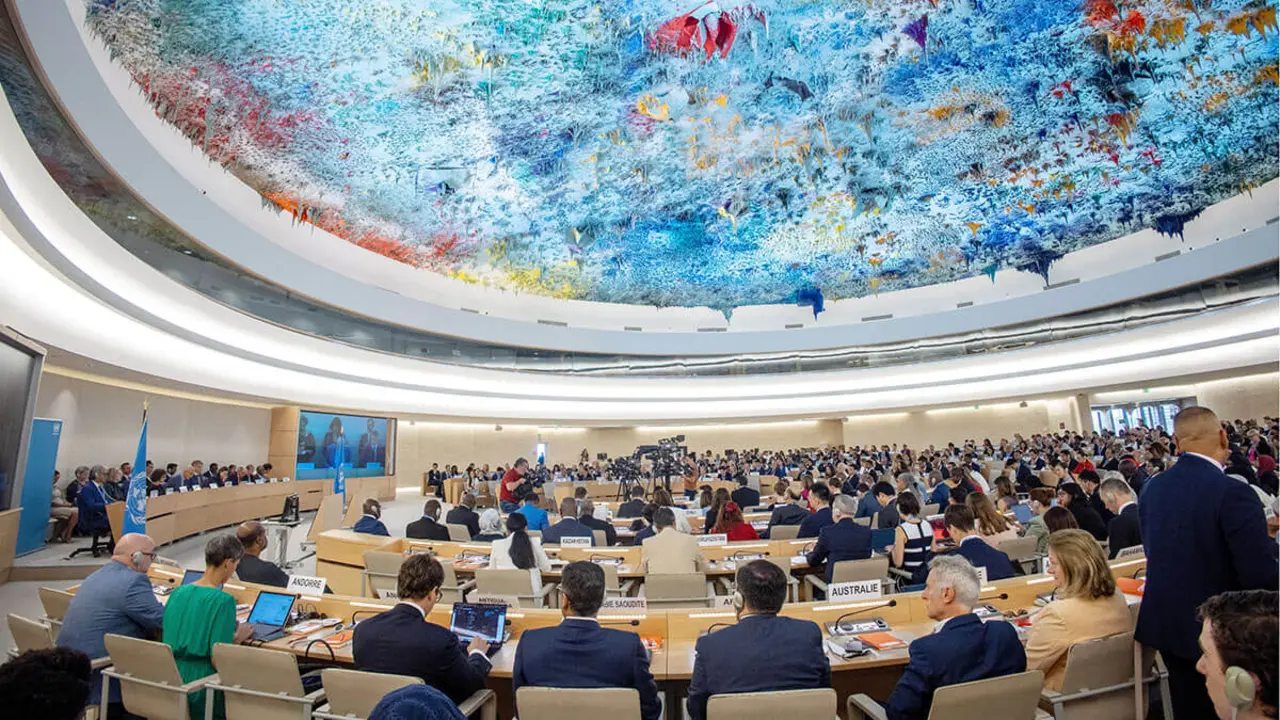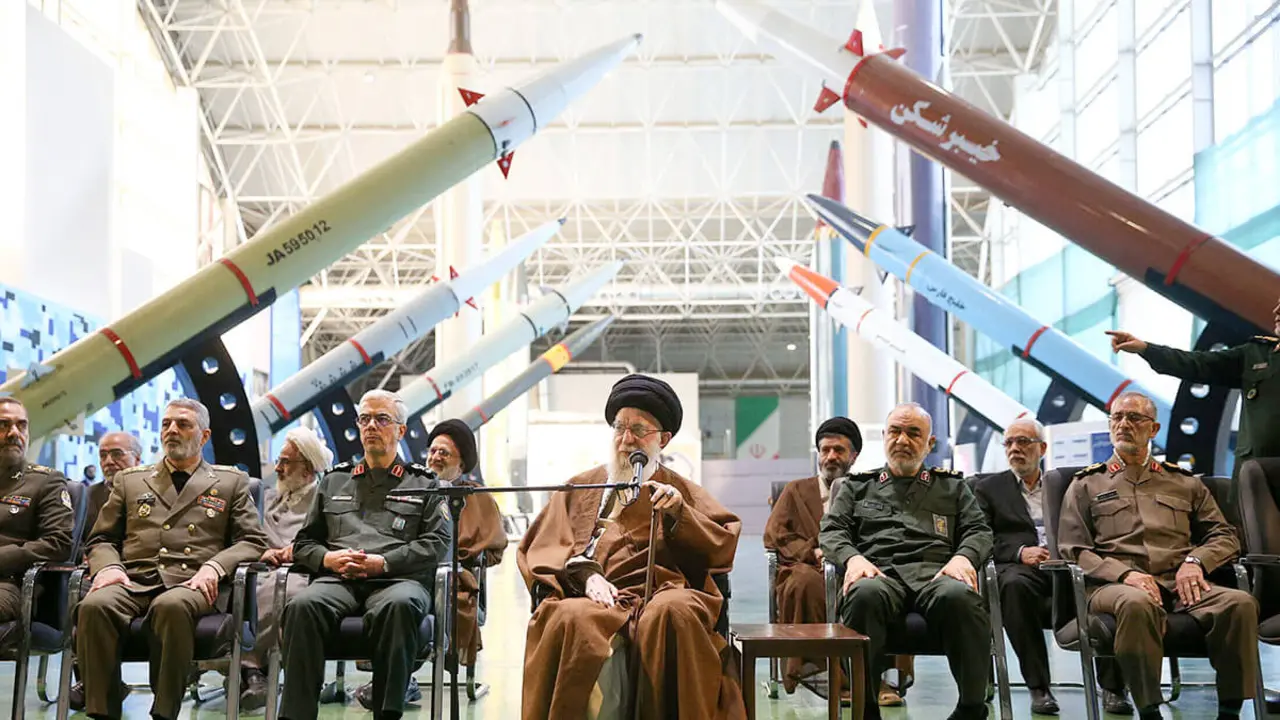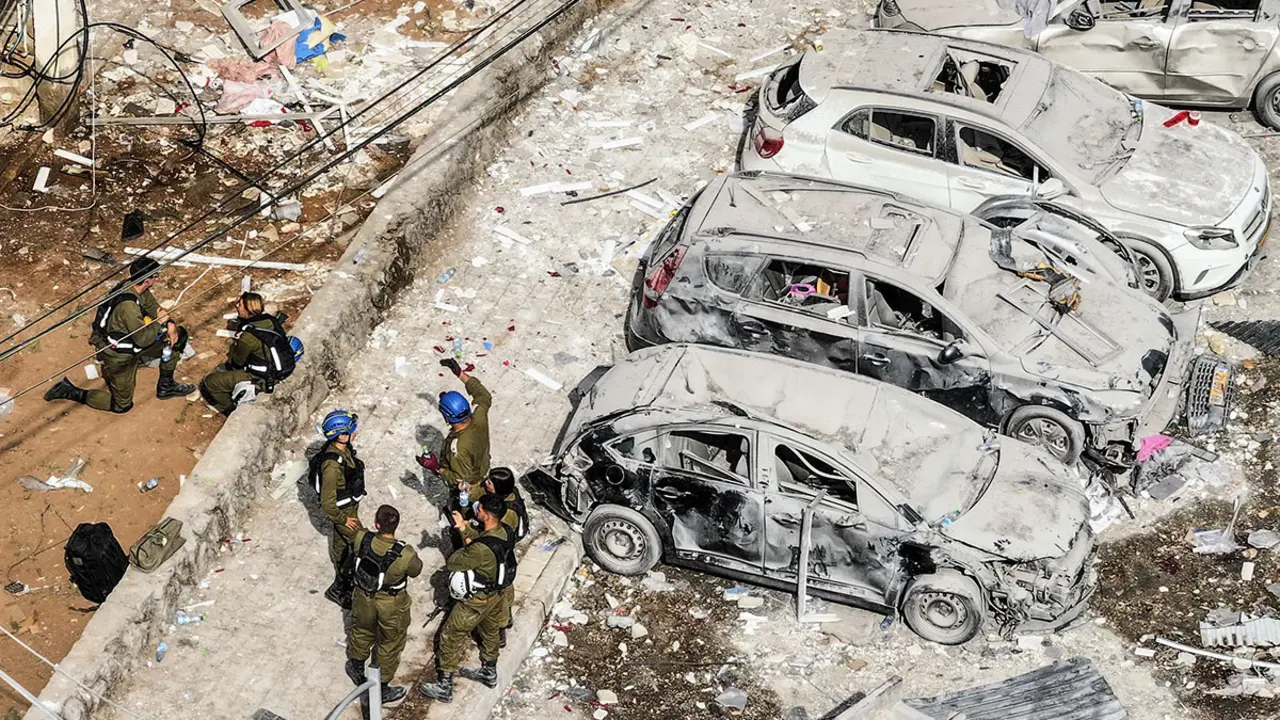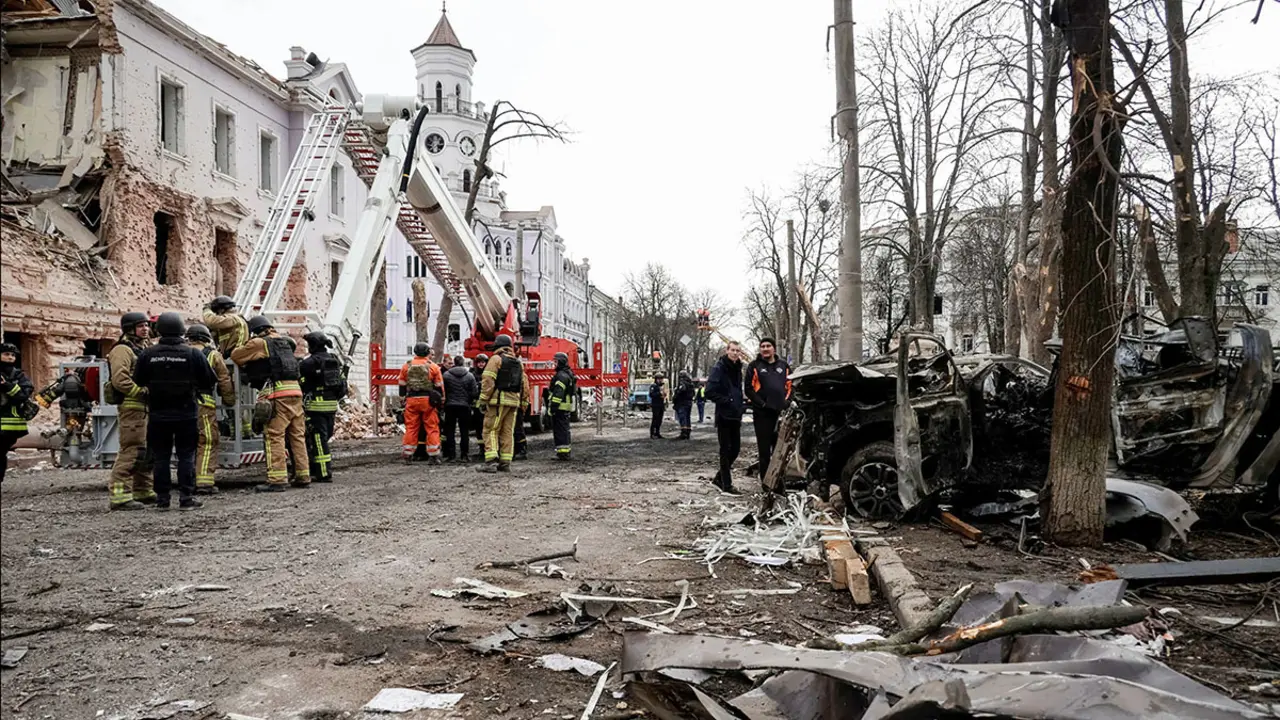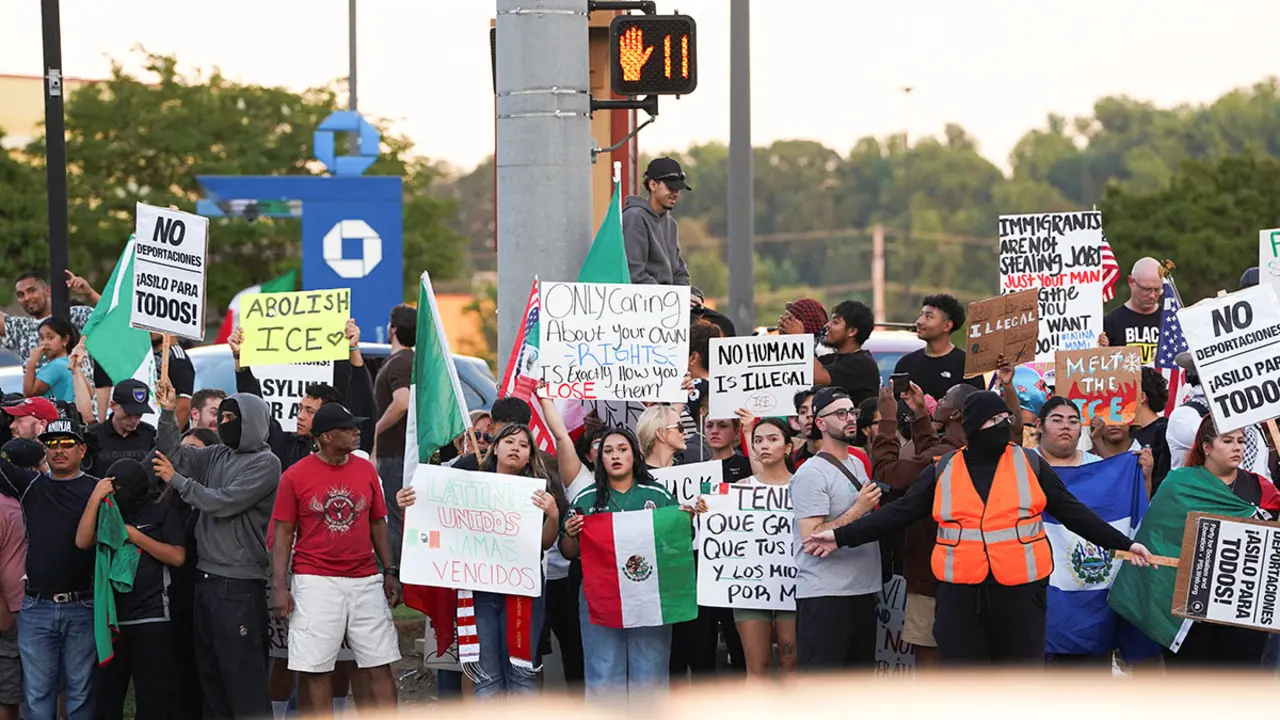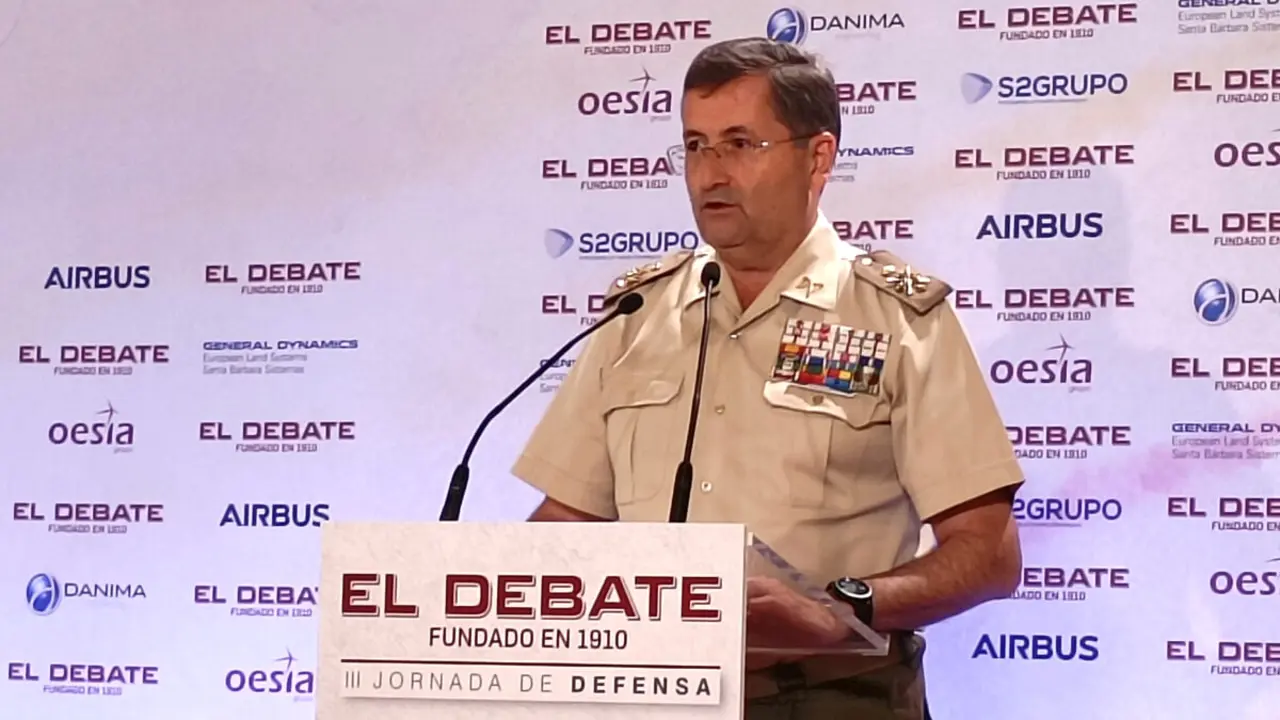The United States returns to the NATO fold

Gone are the days of pushing and shoving, outbursts of temper, and the bad looks on the faces of a US leader at international summits. Belgium is hosting a new NATO summit with Joe Biden as US President, and with him a new rhetoric towards the Atlantic Alliance. The US president has embarked on a European tour to make it clear that the United States is back on the international stage.
In recent days, Joe Biden has represented his country's return to multilateralism during the G7 leaders' summit, as well as in his meeting with British Prime Minister Boris Johnson. The NATO summit was no exception, and in the face of the contempt of the previous US president, Donald Trump, who called the organisation "obsolete", the current president, Joe Biden, wanted to regain the trust of his partners by stressing the importance of NATO for US security.
"Article five is a sacred trust," Biden said, referring to the transatlantic alliance's collective defence commitment. "I want all of Europe to know that the United States is there. During a brief address to NATO Secretary General Jens Stoltenberg, Biden said that "there has been a growing recognition over the last two years that we have new challenges". Among the main challenges on NATO's agenda are Russia and China.

The US president has repeatedly reiterated the threat posed by these two countries to Western security. In fact, a day before Joe Biden's European tour began, the US Senate passed a bill that boosts public spending on research and technological development to confront China. During the NATO summit, the US president has led the initiative to form a bloc policy to deal with the threat posed by the Asian giant.
China was also in the spotlight during the G7 where Beijing was criticised for human rights violations in the Xinjiang region, and leaders at the summit called for Hong Kong to maintain a high degree of autonomy. A full investigation into the origins of the coronavirus in China was also demanded.
NATO Secretary General Jens Stoltenberg himself has pointed out that China's growing military presence, from the Baltics to Africa, means that NATO must be prepared. "China is moving closer to us. We see them in cyberspace, we see China in Africa, but we also see China investing heavily in our own critical infrastructure," he said, referring to ports and telecommunications networks.
NATO therefore describes China's behaviour as a "systemic challenge". According to Reuters, which has had access to a copy of the summit's final declaration, "China's stated ambitions and assertive behaviour present systemic challenges to the rules-based international order and areas relevant to alliance security". This statement represents a shift in NATO's strategy towards Russia for the most part.
Moscow has also been a major topic of discussion among NATO allies. The rise of cyber-attacks is of concern to Biden's administration as well as its European partners. In the face of this new security challenge, NATO has decided to update Article 5 to include major cyber attacks, meaning that if an alliance member needs technical or intelligence support in response to a cyber attack, it can invoke the mutual defence provision for assistance.

Stoltenberg agreed with the US president on the threat posed by Russia, adding that the alliance with Moscow was at "its lowest point since the end of the Cold War". He blamed Russia's "aggressive actions" for the deterioration of these relations.
In addition to Russia and China, the main issues to be addressed at the NATO summit, climate change, which is recognised as a risk, was discussed along with disinformation and hybrid warfare. NATO leaders plan to adapt their military operations to produce fewer emissions in order to contribute to the fight against climate change. The withdrawal of US troops from Afghanistan has also been on NATO's agenda, and it has finally been agreed that funding for Afghanistan's security forces will continue after the military withdrawal is complete.
US President Joe Biden ties up loose ends ahead of his imminent meeting with Russian President Vladimir Putin in Geneva, Switzerland. Biden, after his meeting with Prime Minister Boris Johnson, the G7 summit, the NATO summit and his subsequent bilateral summit with the European Union, will head to his meeting with his Russian counterpart with his homework done and a strengthened alliance with his European partners, as well as with the leaders of the G7 and NATO.
A few days ago, La Moncloa announced the expected meeting between US President Joe Biden and Spanish Prime Minister Pedro Sánchez. The meeting would take place during the NATO summit, at a delicate moment for Spain in view of the diplomatic crisis with Morocco. The US president, Joe Biden, has not yet called the Spanish president since he arrived at the White House on 20 January.

The opposition, led by the leader of the Popular Party, Pablo Casado, has reproached Sánchez's government for this fact, arguing that it "demonstrates Spain's loss of weight on the international stage". The long-awaited meeting between the Spanish leader and the US president took the form of a brief chat that took place at the end of the family photo of the NATO summit. A somewhat brief first contact where issues such as immigration, Latin America, as well as the military alliance between the two countries were discussed. "We want to strengthen military ties and the bilateral defence agreement that dates back to 1988. The Spanish government's position is to update it," Sánchez said.
Pedro Sánchez also took the opportunity to meet with his Turkish counterpart, Recep Tayyip Erdogan, to whom he conveyed the need for "stability and prosperity" in Libya, according to EFE. During the meeting, the two presidents also expressed their desire for the summit between Spain and Turkey, which will take place at the end of the year, to be accompanied by a business forum.
The organisation has confirmed that Spain will host the next NATO summit in 2022, coinciding with the 40th anniversary of its entry into the Atlantic Alliance, where the new NATO Strategic Concept is to be approved.

